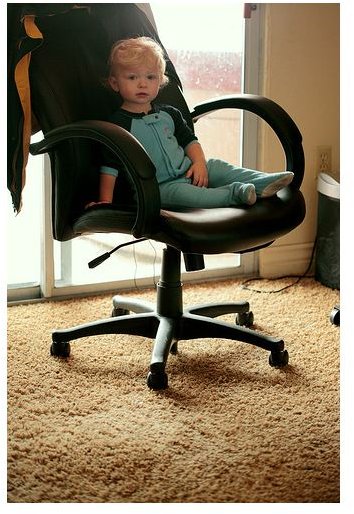Work and Family Balance: Creating Policies for Employees Bringing their Children to Work
Benefits of Allowing Employees to Bring Children to Work
If you are considering creating policies for employees bringing their children to work, it is important that you first weigh the benefits of doing so against potential consequences. It is not a bad idea to have a team meeting with your most trusted staff members to ask them for their input and ideas.
One advantage of allowing employees to bring kids to the office is that this becomes an added perk to add to your list of benefits. Even if you are unable to offer higher wages or bonuses, this policy will likely have great appeal to both potential and long-standing employees. It creates a feeling of goodwill and promotes the concept that staff and management are on the same team. Getting to know the children of management, assistants and colleagues fosters a sense of community and family.
Another benefit of these policies is that it will help prevent employees from missing work due to unforeseen circumstances such as snow days when schools are closed or childcare problems. In addition, employees will appreciate the help as they try to balance work and family life, making them likelier to be more concientious employees and increase their willingness to step up when special projects or situations call for extra time and effort. Furthermore, because they are not distracted with worry about their children, they may be better able to focus on the tasks at hand.
Image credit: Flickr.com/D Sharon Pruitt
Problems with Allowing Employees to Bring Children to Work
Just as there are benefits to policies for employees bringing their children to work, there are downsides as well. If an employee totes a sick child into the office, there is the likelihood that other staff members will contract whatever is causing the litte one to be ill. This could create a domino effect, resulting in several sick and absent employees. In addition, the parent of a sick child will likely have trouble focusing on work and be drawn to checking on and caring for him.
Even if a child is healthy, a bored or energetic youngster can be a distraction to her parent as well as others in the workplace. It is important to consider hazards that could harm children brought to work, as well. Even offices have potential dangerous objects, such as paper cutters, shredders and staplers. An injured child might be a liability your business cannot afford.
Policies and Alternatives to Consider
If you decide to enact policies for employees bringing their children to work, make sure you put them in writing. Here are some policies to consider including:
- Children who are old enough to and capable of entertaining and caring for themselves without distracting or interrupting their parents or other staff members may be brought to the workplace on a case-by-case basis.
- Children of employees who are brought to work must remain in the areas designated (e.g. a certain conference room, restroom, break room, etc.).
- Management reserves the right to require employees to make other arrangements for children if management deems that the child is disrupting the workplace.
- Children of employees may/may not utilize company computers/Internet access/telephones, etc.
You may also wish to offer other options, as well. For instance, an on-site childcare program offered at a reasonable rate might please many of your employees. Alternatively, your business may be able to work out a deal with a nearby daycare or emergency babysitter service to help out employees who are in a bind without impacting your workplace atmosphere.
Consider the needs and limitations of your business and employees and you are sure to come up with the ideal solution for your workplace.
